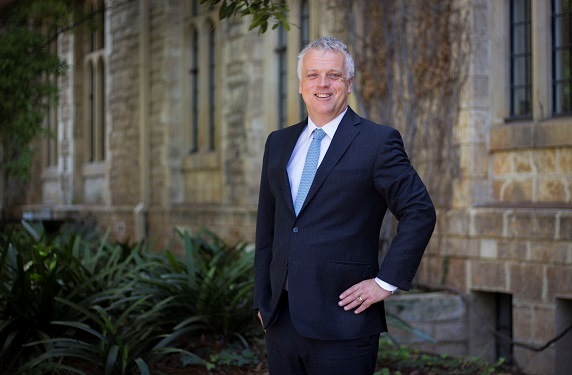UWA is taking a strategic approach to equity and social inclusion. The University of Western Australia Act 1911(WA) charged the University with the mission, “that special encouragement and assistance should be afforded those who may be hindered in the acquisition of sound knowledge and useful learning by lack of opportunity or means.” In addition, the Federal Government has established performance funding for the participation and retention of low-SES, rural and remote and Indigenous students.
We have developed the Student Equity and Access Framework, now in the final stages of development, with the aim of supporting the increased diversity of our student cohort. This Framework acknowledges and values the benefits of this diversity for the whole University community. It ensures a lifelong learning approach, ranging from what we do at pre-tertiary levels; what we do at the University and the support of mature learners and those seeking professional development e.g. through micro-credentials.
For our current students, the last few years have seen a swathe of reforms, including the Hackett Scholarships; the alternative pathways for Year 12 students; and Connect Conversations where staff help students transition to University, focussed on those who faced significant disruption to Year 12 and accessed UWA via the alternative pathways or those who have come from areas of significant disadvantage. More broadly, this group of students are being supported for success within the EquiP initiative (for students belonging to equity cohorts such as low SES, regional, remote, first in family) which is monitoring early engagement with campus life and academic study and providing personalised support at the discipline level. Existing programs like UWA Fairway have also continued to grow, with the 2021 cohort being the largest intake to date.
Children’s University – welcoming our smallest graduands
On Tuesday 16 March, you may have heard the familiar sound of the bagpipes and seen a procession of graduates in caps and gowns walk alongside Winthrop Hall before the actual ceremony. There was a difference, however, to the graduation ceremonies of the week before. As the procession headed for the hall, families, friends, primary school staff, and guests from across UWA and beyond, stood proudly to clap the graduates on their way. The graduates themselves were a bit shorter than our standard graduands. That is because they were children, aged from seven years and from Cooloongup Primary School, Rockingham Beach Primary School and St. Joseph’s Primary School, Pinjarra.
This was the first Children’s University graduation at UWA and while it may be a modest start of 21 children and three schools, no-one could deny the pride of the parents and families; the commitment of the Learning Destinations; or the passion of the schools involved.
"It has been shown at other universities which run a Children's University initiative that cases of 'reverse aspirations' have occurred, with parents enrolling in part-time degrees."
Professor David Sadler, Deputy Vice-Chancellor (Education)
So what is the Children’s University? It is an international initiative that aims to foster lifelong learning aspirations in children by encouraging and celebrating learning beyond the classroom. This can be through opening up opportunities through fun activities in their local communities at “learning destinations”, which can be sports clubs, museums, galleries, and other attractions such as Scitech; or exciting extracurricular activities at their school, such as lunchtime clubs. It is aimed at disadvantaged and/or regional/remote communities to narrow social inequalities but is open to all schools. Schools participate voluntarily, as do the children, who earn stamps in their Passport to Learning when they participate in validated learning activities. Once they have enough hours recorded, they graduate in caps and gowns at various levels - bronze, silver and gold. For UWA, this is a major element of our commitment to lifelong learning, as well as to social inclusion and to regional communities.
The Children’s University WA Partnership with ECU is unique in Australia and has allowed UWA to operate in Albany, Peel as well as Perth. Numerous studies have shown the positive impact on learning in key areas of literacy and numeracy, and staged improvements in behaviour (fewer absences from school, fewer incidents); raised aspirations and levels of achievement and engagement in learning, compared to non-CU students in the same class or school. Many interventions have been tried in the classroom, but the Children’s University binds the community and families into the expanded opportunities for the children who participate. It has been shown at other universities which run a Children's University initiative that cases of 'reverse aspirations' have occurred, with parents enrolling in part-time degrees.
The Children’s University at UWA is funded generously by Rio Tinto and we are actively seeking further philanthropic support to reach more children and a larger number of schools. The WA Commissioner for Children and Young People, Colin Pettit, is the titular Vice-Chancellor of the Children’s University in WA.
This is my second Children’s University - the first was established during my time at the University of Tasmania, where it was embedded into a broader institutional commitment to addressing educational disadvantage in the State. It quickly proved very successful with many schools jumping at the opportunity to participate in a program that became sustainable through the expansion of Learning Destinations and significant philanthropic involvement.
The Children’s University has a bright future in WA and the Graduation Ceremony is a significant first step. As always, my thanks go to all the professional and academic staff who made this event so joyful.
Professor David Sadler
Deputy Vice-Chancellor (Education)

